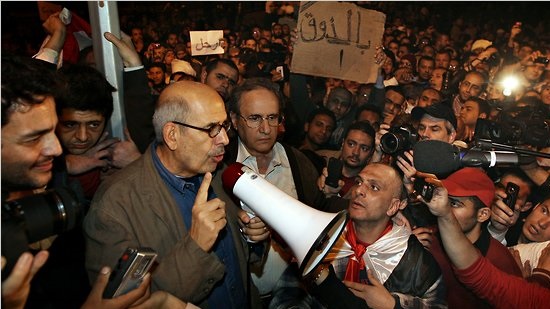Former Egyptian vice president Mohamed ElBaradei released a long statement on Tuesday defending himself against what he described as a years-long "smear campaign" against him by the Egyptian media.
In a statement issued on his Facebook page, ElBaradei defended himself against what he called "lies" in the Egyptian media regarding his role in the ouster of Islamist president Mohamed Morsi; his resignation as vice president; his role as the head of the International Atomic Energy Agency prior to the 2013 US invasion of Iraq.
He also revealed how he and other key political players who opposed Morsi only learned of the detention of former president Morsi during their meeting with the Supreme Council of Armed Forces on the morning of 3 July 2013.
"The options at that moment became extremely limited and of course having early presidential elections was no longer an option," he said, defending himself.
Holding early presidential elections was among the main demands of the anti-Morsi 30 June protestors.
"According to the facts, there was a detained president and millions in the squares protesting -- my priority then was to avoid civil unrest and keep things peaceful through the political transitional road map," ElBaradei said in his 13-point statement.
ElBaradei was appointed as Egypt's vice-president after the ouster of Morsi, with Adly Mansour appointed as interim president. He resigned from his post on 14 August 2013, hours after the dispersal of the pro-Morsi sit-ins by force.
ElBaradei said that he had held talks with the pro-Morsi camp until 13 August 2013 in an effort to mediate a peaceful dispersal of the sit-ins. He added that during the National Security Council meetings he clearly expressed his rejection of forced dispersal of the sit-ins.
The Nobel Peace prize laureate also slammed what he described as vicious media attacks after his resignation, which reached the point of broadcasting in 2014 his personal phone calls on TV in violation of the constitution and law.
ElBaradei, who has been living outside Egypt since his resignation, has been increasingly vocal on Twitter in the past couple of months, criticising current policies in Egypt.
Local media outlets have accused the 73-year old of "working against Egypt's current government."




